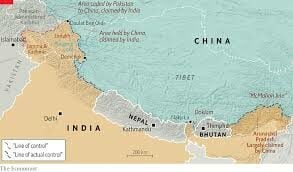The federal government and private sector stakeholders have called for the nationwide adoption of a market-led extension service model driven by Micro, Small and Medium Enterprises (MSMEs) as a sustainable solution to agricultural productivity.
This was among the key issues discussed at the National Agricultural Extension Service Impact-sharing Workshop held yesterday in Abuja with the theme, “Innovations in Market-led Extension Service Delivery in Nigeria”.
Minister of agriculture and food security, Abubakar Kyari stressed the vital role of pluralistic agricultural extension services in achieving food sufficiency and transforming Nigeria’s agricultural landscape.
The minister who was represented by the director, Federal Department of Agricultural Extension Services, Dr Deola Lordbanjou noted that MSMEs have been transformed into extension delivery firms through training and coaching.
According to the minister, the partnership with USAID through its Feed the Future agricultural extension delivery activity has introduced innovative private-sector-driven approaches to agricultural extension, including digital extension services, which are now integrated into public sector systems and some universities.
Director of Winrock International, Jean Pierre Rousseau, stressed the need for a more efficient and impactful extension service delivery model.
He pointed out that Nigeria’s current extension system faces a severe challenge, with only one extension agent serving as many as 10,000 farmers.
To overcome this, he said that the USAID Feed the Future Agricultural Extension Activity, in partnership with the Federal Department of Agricultural Extension, has turned to MSMEs as key change agents.
He noted that the MSMEs have significantly improved access to essential agricultural resources such as climate-resilient seeds, fertilizers, and mechanization services, leading to higher adoption rates of modern farming practices—up to 70% among farmers.
Rousseau further stated that MSMEs are not only facilitating access to improved inputs but are also bridging the financing gap, providing smallholder farmers with input credit models that have achieved over 95% repayment rates.
He said, “The solution lies in the spirit of entrepreneurship in Nigeria, over 311 MSMEs are now driving innovation, bringing critical inputs and services to over 2 million smallholder farmers across seven states, transforming extension services from information dissemination into a robust, market-aligned enterprise.
MSMEs have demonstrated that private sector-led extension services are a profitable business that benefits both the service providers and farmers. This market-led approach represents the future of extension services in Nigeria and is vital for achieving national food self-sufficiency.”











